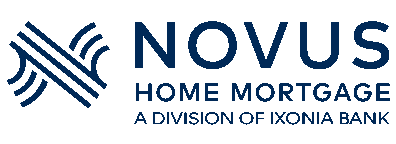
Dan Green
Homebuyer.com
Dan Green (NMLS 227607) is a licensed mortgage professional who has helped millions of people achieve their American Dream of homeownership. Dan has developed dozens of tools, written thousands of mortgage articles, and recorded hundreds of educational videos. Read more about Dan Green.

This website discusses mortgage programs and how to qualify. Your eligibility may vary based on lender guidelines and investor overlays. Check with your lender for specific details.
Trusted Content
This article was checked for accuracy as of January 23, 2025. Learn more about our commitments to accuracy and your mortgage education in our editorial guidelines.
Updated: January 23, 2025
This article provides information about The Decent, Affordable, Safe Housing for All Act, a proposed bill that has not yet been passed into law. Please note that details are subject to change as the legislative process continues.
The DASH Act is a sweeping bipartisan housing market bill that includes a $15,000 tax credit for first-time home buyers.
DASH is an acronym. It stands for Decent, Affordable, Safe Housing for All.
The DASH Act is different from the First-Time Homebuyer Tax Credit Act, which also gives a $15,000 tax credit to first-time home buyers, and the $10,000 First-Time Home Buyer Mortgage Relief Credit introduced in President Biden’s 2024 State of the Union address.
The DASH Act was first introduced in the 117th Congress (2021-2022) and did not pass into law. It was again introduced in the 118th Congress (2023-2024). Again, It did not pass into law. This is common. According to FactCheck.org, only 4% of bills introduced become law.
As of April 1, 2025, the DASH Act has not been introduced in the current congress, the 119th Congress (2024-2025).
The DASH Act is a bill introduced in the last Congress by Senator Ron Wyden of Oregon in the Senate and Representatives Val Hoyle [D-OR-4] and Salud Carbajal [D-CA-24] in the House.
The bill creates home construction incentives, directs money to cities for zoning and improvements, and expands homeownership opportunities for first-time buyers. It benefits low- and moderate-income households, affordable housing builders, and state and local housing agencies.
The DASH Act is large, with more than twenty sections. Some of its key components include:
For people who meet the DASH Act’s first-time home buyer definition, though, the bill’s most notable feature is its $15,000 refundable tax credit, which we discuss in more detail below.
Check your eligibility and begin your application now.
The DASH Act includes a refundable first-time home buyer tax credit of up to $15,000.
Eligible first-time buyers receive a federal tax bill credit equal to twenty percent of their home’s purchase price, up to a maximum tax credit of $15,000. According to the bill’s language, the U.S. Treasury would give eligible buyers a tax refund if their DASH Act tax credit exceeds their tax liability.
Decent, Affordable, Safe Housing for All eligibility is based on four criteria:
The DASH Act is available to first-time home buyers only, but the program defines “first-time buyer” differently from other first-time home buyer programs. According to the DASH Act, a first-time home buyer is a person who has never owned a home in their lifetime. This is a non-standard first-time home buyer definition.
The DASH Act does not require home buyers to be first-generation home buyers or members of a minority or protected class as other congressional bills do, such as the $25,000 cash grant Downpayment Toward Equity Act.
DASH Act buyers must also:
Lastly, DASH Act-eligible buyers must purchase their home in an arms-length transaction and take residence within 60 days of settlement.
The DASH Act is a bill for low- and moderate-income households, so the $15,000 tax credit phases out when home sale prices exceed local mortgage loan limits by 10 percent or more.
In most parts of the country, the conforming mortgage loan limit is $806,500. In high-cost areas, it can range up to $1,209,750. Whatever your local mortgage loan limit, the DASH Act allows a ten percent buffer. When buyers purchase homes above DASH Act limits, their credit reduces by $1,500 per $10,000 in the purchase price until the credit reaches zero.
Note: The DASH Act’s tax credit cannot exceed 20 percent of a home’s purchase price. Buyers who purchase homes for $75,000 or less receive a lesser credit.
The DASH Act tax credit is limited to low- and moderate-income home buyers.
To get the bill’s full $15,000, buyers and their modified adjusted gross income must meet the below eligibility requirements. Buyers who earn above program limits receive a reduced home-buying tax credit that phases out as income levels rise.
According to the IRS, your modified adjusted gross income is the sum of everything earned in a calendar year — wages, tips, investment income, farm income, and more — minus certain tax-deductible expenses such as retirement plan contributions, student loan interest, and specific business expenses.
Married persons filing separately cannot get the DASH Act credit.
The DASH Act is for primary residences only. It is not for second homes, vacation homes, flipped homes, and short- and long-term rental properties.
Therefore, buyers who change their primary residence within five tax years of making a DASH Act purchase are subject to a tax credit recapture, payable to the IRS.
The DASH Act repayment schedule is as follows:
The DASH Act makes exceptions to the 5-year rule for homeowners facing unforeseen and severe circumstances, including the death of the homeowner or their spouse, job loss or job-related relocation, and illness that results in the inability to work or maintain employment.
Military relocations are also eligible for exception.
As of April 1, 2025, the DASH Act has not been re-introduced in the current Congress, so there is no $15,000 first-time home buyer tax credit available to claim. However, should the DASH Act pass, buyers won’t be required to apply for it.
The DASH Act is a credit on your tax bill –- it’s not a special mortgage like the LIFT Act or the HELPER Act.
Eligible DASH Act buyers could claim their home purchase tax credit as part of their annual federal tax filing. Proof of purchase requires only an attestation and settlement statement or closing disclosure from a mortgage company.
Furthermore, because it’s a tax credit, the DASH Act can be combined with any available mortgage program, including popular low-down-payment mortgages like HomeReady, Home Possible, and Conventional 97, which allow for a 3 percent down payment for eligible buyers and the USDA orVA mortgage program, both of which allow for nothing down.
The DASH Act tax credit adjusts annually with inflation, rounded to the nearest thousand. If inflation is 5 percent in the program’s first year, the maximum DASH Act tax credit rises to $16,000.
As of today, April 1, 2025, the DASH Act is not introduced in the Senate or the House.
Housing bills tend to move slowly through Congress until they’re ready to pass. The DASH Act could pass into law this year, next year, or never. While Congress decides, government mortgage agencies have made rules to help buyers, including giving discounts on today’s mortgage rates and lowering FHA mortgage insurance rates.
Yes, first-time buyers can claim the DASH Act tax credit for purchasing a new construction or move-in ready home.
The DASH Act defines a first-time home buyer as someone who has never owned a home. Other first-time buyer programs define a first-time buyer as someone who hasn’t owned a home in the last 36 months.
Yes, the DASH Act is a tax credit that buyers can combine with other first-time home buyer grants, including the $25,000 grant for first-time buyers and any local or municipal cash grant programs.
The DASH Act tax credit is limited to 20 percent of a home’s purchase price. Therefore, buyers of a $60,000 home receive a maximum $12,0000 federal tax credit.
Yes, the DASH Act is a bill to help first-time home buyers. There are no restrictions on how buyers finance a home. Cash buyers are allowed.
The HELPER Act, which is officially titled “Homes for Every Local Protector, Educator, and Responder Act,” is a no-money-down, no-mortgage insurance program for teachers, law enforcement officials, and firefighters. We do not know which bill will pass first or if either bill pass into law at all.
No, the DASH Act and the $15,000 First-Time Home Buyer Tax Credit Act are different bills. The author of the DASH Act describes it as a “generational investment” in housing and home affordability. The other first-time home buyer tax credit bill is simply a tax credit.
This article, "The DASH Act: $15,000 Tax Credit For First-Time Home Buyers," authored by Dan Green, is based on extensive professional mortgage experience and includes references to trusted sources such as industry-leading financial institutions and expert research from the following websites:
This article was last updated on January 23, 2025.
Wave goodbye to waiting times and say hello to our faster, better mortgage application. It's available anytime you are, 24/7/365. The power to approve your mortgage is just a click away.

A Division of Ixonia Bank
Member FDIC. Equal Housing Lender.
Homebuyer.com
Operated by Novus Home Mortgage,
A Division of Ixonia Bank
1311 Vine St
First Floor
Cincinnati, OH 45202
513-824-8171
Notices
Mortgages
Notifications